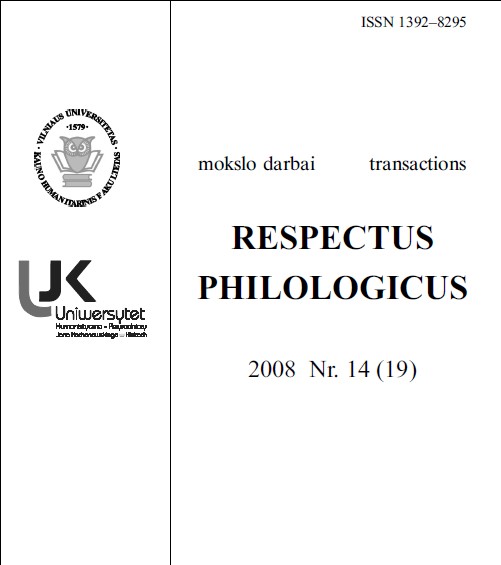НЕСКОЛЬКО СЛОВ О КОГНИТИВНО-РИТОРИЧЕСКОМ АНАЛИЗЕ АРГУМЕНТАЦИИ В ПОЛИТИЧЕСКОМ ДИСКУРСЕ
SOME WORDS ON COGNITIVE RHETORICAL ANALYSIS OF ARGUMENTATION IN POLITICAL DISCOURSE
Author(s): Viktorija MakarovaSubject(s): Logic, Cognitive linguistics, Politics and communication, Rhetoric
Published by: Vilniaus Universiteto Leidykla
Keywords: argumentation; convictions; logics; rhetoric; thesis; argument; political discourse; presidential speeches;
Summary/Abstract: The article presents a brief overview of prevailing ways of analyzing the phenomenon of argumentation and exhibits how it is performed and what results can be achieved while applying cognitive rhetorical analysis of argumentation which is supposed to show the society’s type of thinking. The primary idea of the analysis of cognitive structures of argumentation is that the features of argumentation are defined by the speaker’s cognitive attitude, namely, the knowledge of how to influence the audience and what is considered to be fair and valuable in a particular society. The analysis of rhetorical structures of argumentation offers a classical research showing the way the motivating idea is introduced in the text and the way arguments are presented to support it. Thus, first of all, applying the method of inductive generalization, it was established what idea should be considered as the thesis. Hence, the analysis of cognitive structures of argumentation has revealed that the underlying oppositions of Putin’s annual speeches at Federal Meetings (2000-2007) are the following: strength ~ weakness, Russia ~ the West, justice ~ injustice, democracy ~ antidemocracy. The first member of the opposition is considered to have morally valuable implications. The texts of the leading parties during the period of elections to Duma (2003) are reasoned by such binary base oppositions: strength ~ weakness, Russia ~ the West, justice ~ injustice, order ~ disorder. This is the way how the values of the society are presented; thus, in this frame the communication is established.
Journal: Respectus Philologicus
- Issue Year: 2008
- Issue No: 14 (19)
- Page Range: 115-120
- Page Count: 6
- Language: Russian

